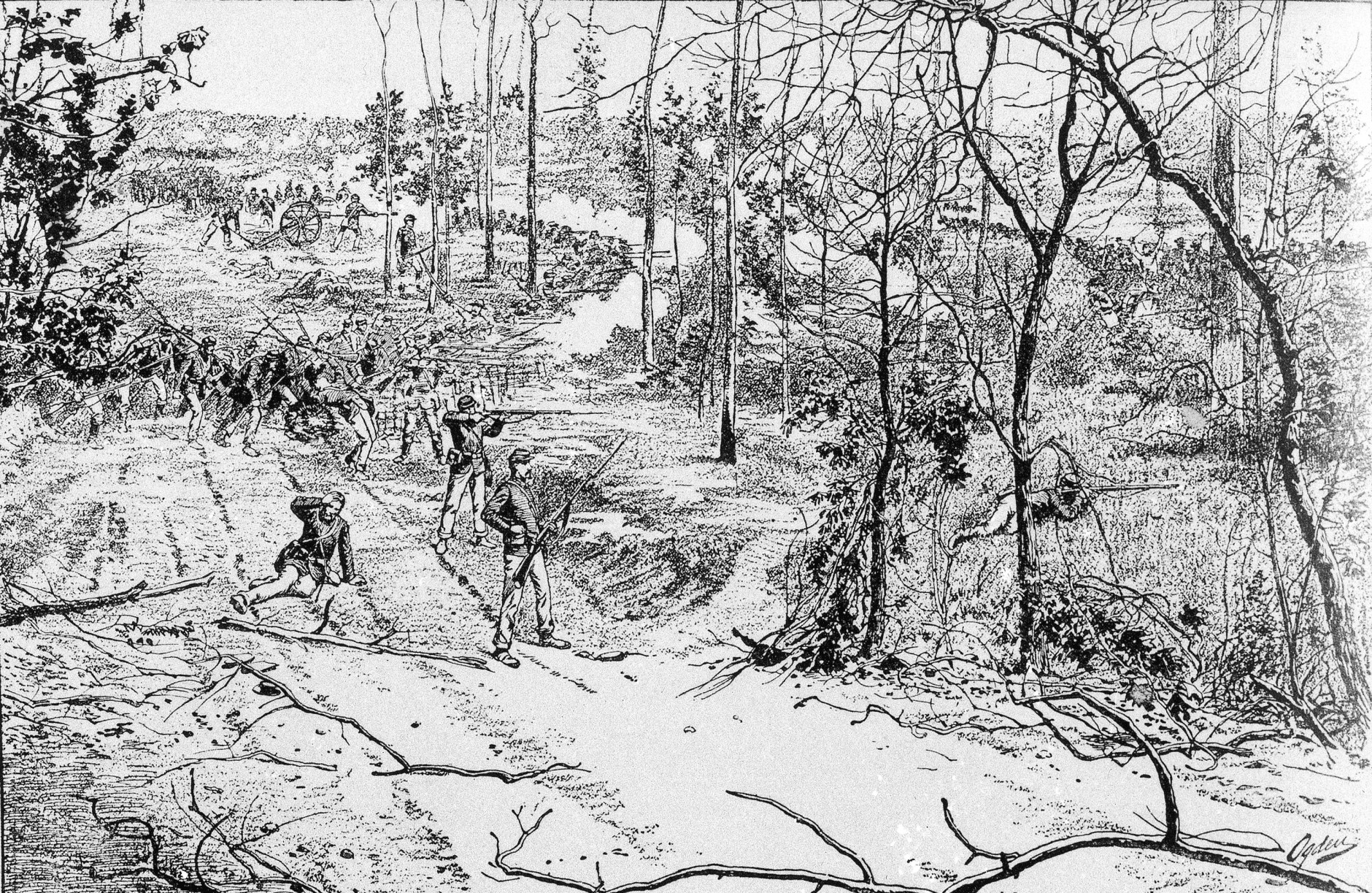
In 1862, Union forces led by Gen. Ulysses S. Grant defeated the Confederates at the Battle of Shiloh in Tennessee. (AP Photo)
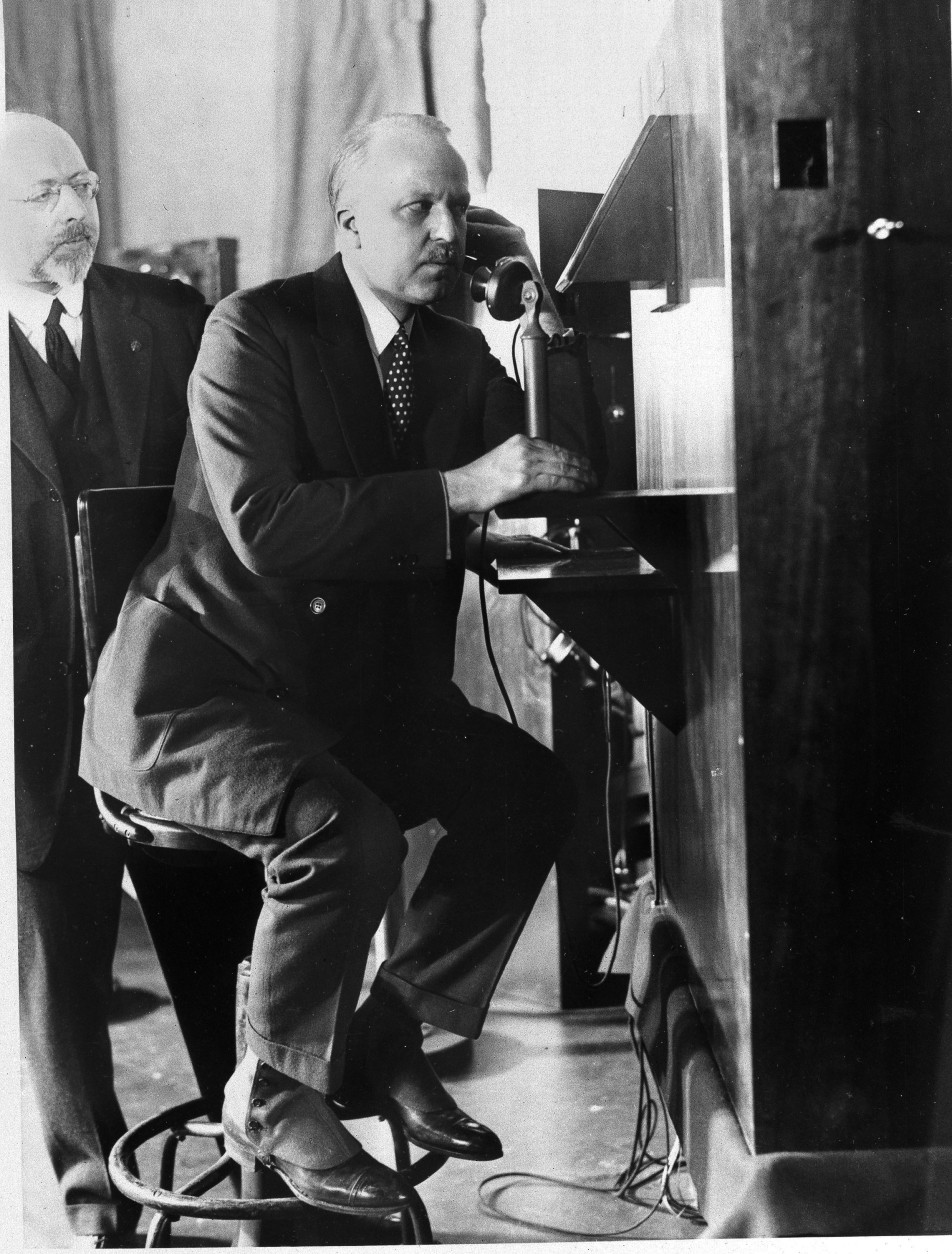
In 1927, the image and voice of Commerce Secretary Herbert Hoover were transmitted live from Washington to New York in the first successful long-distance demonstration of television. Here, F.B. Jewett, president of A.T.&T. Co. in New York, talks with Secretary Hoover in Washington as he views Hoover’s moving image in the small box at eye level. Dr. Herbert E. Ives, who is credited with the invention, looks on. (AP Photo)
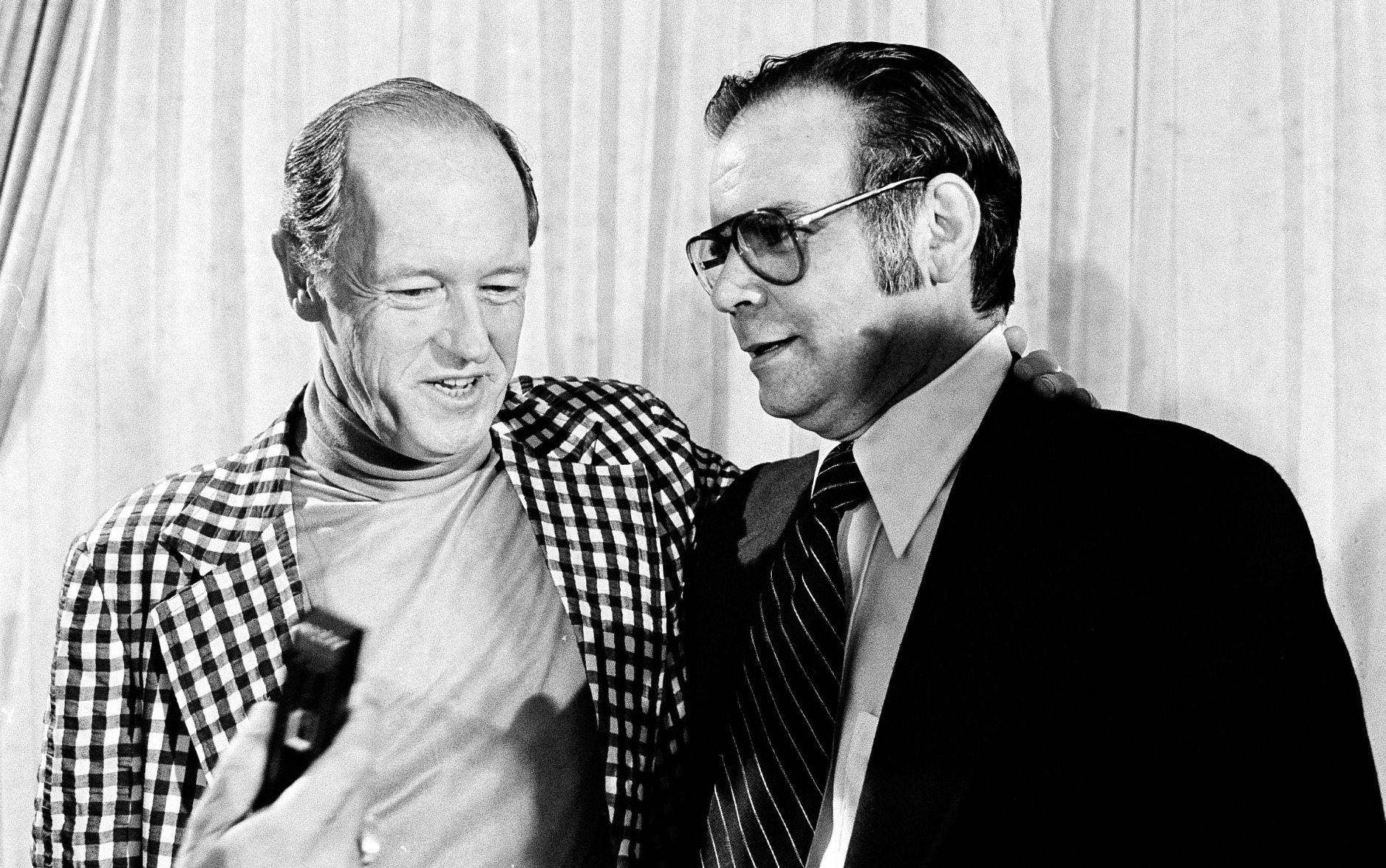
In 1962, nearly 1,200 Cuban exiles tried by Cuba for their roles in the failed Bay of Pigs invasion were convicted of treason. In this 1977 file photo, Watergate burglar E. Howard Hunt, left, embraces Cuban exile Manuel Artime, a leader of the 1963 Bay of Pigs invasion of Cuba, after a news conference in Miami. (AP Photo)
In 1978, President Jimmy Carter announced he was deferring development of the neutron bomb, a high-radiation weapon. In this 1979 file photo, college student Chuck McManis watches President Carter’s nationally televised speech from a service station in Los Angeles. (AP Photo/Mao, File)

In 1994, civil war erupted in Rwanda, a day after a mysterious plane crash claimed the lives of the presidents of Rwanda and Burundi; in the months that followed, hundreds of thousands of minority Tutsi and Hutu moderates were slaughtered by Hutu extremists. Here, French paratroopers evacuate foreigners loaded on a truck on the outskirts of Kigali, Rwanda. (AP Photo/Karsten Thielker)
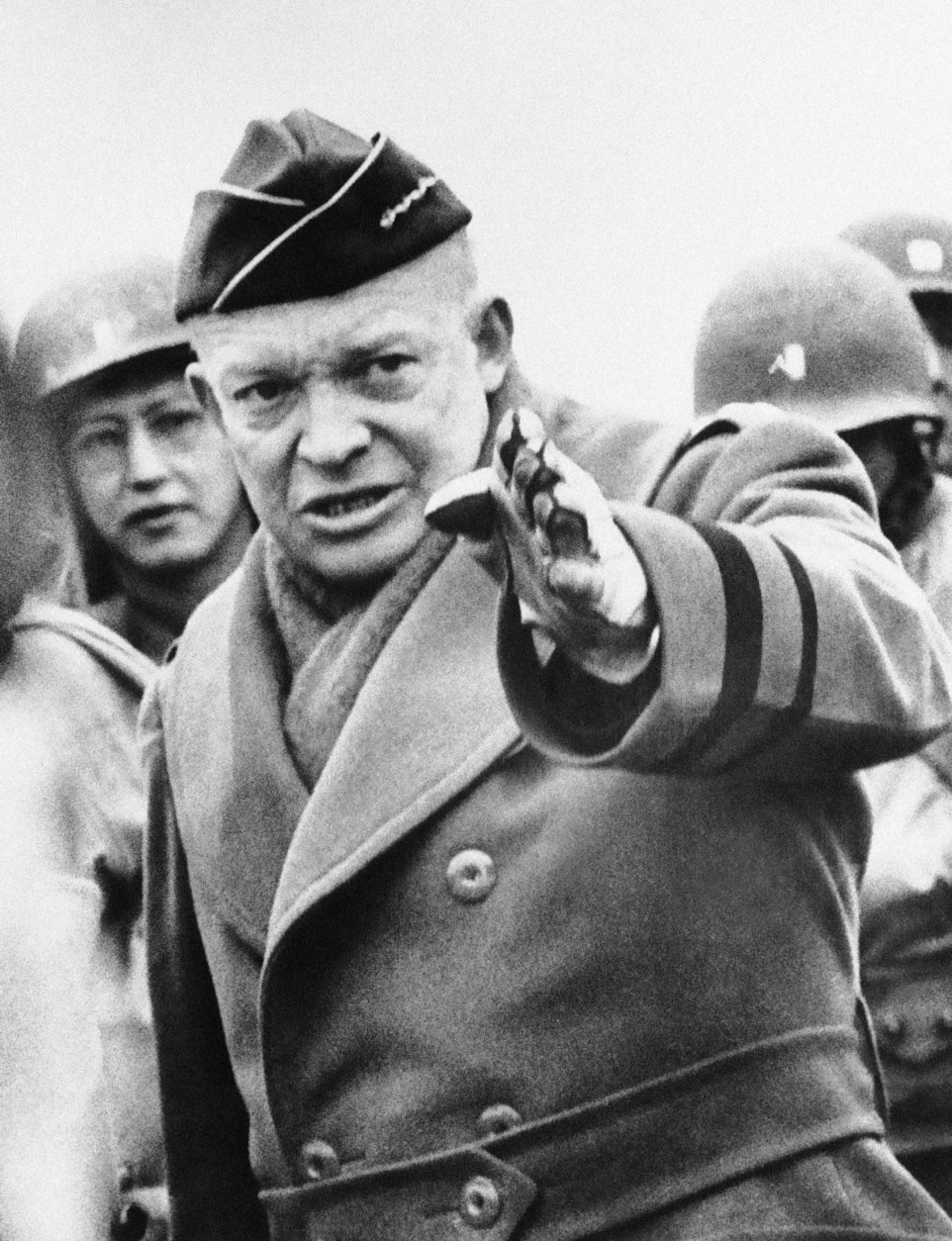
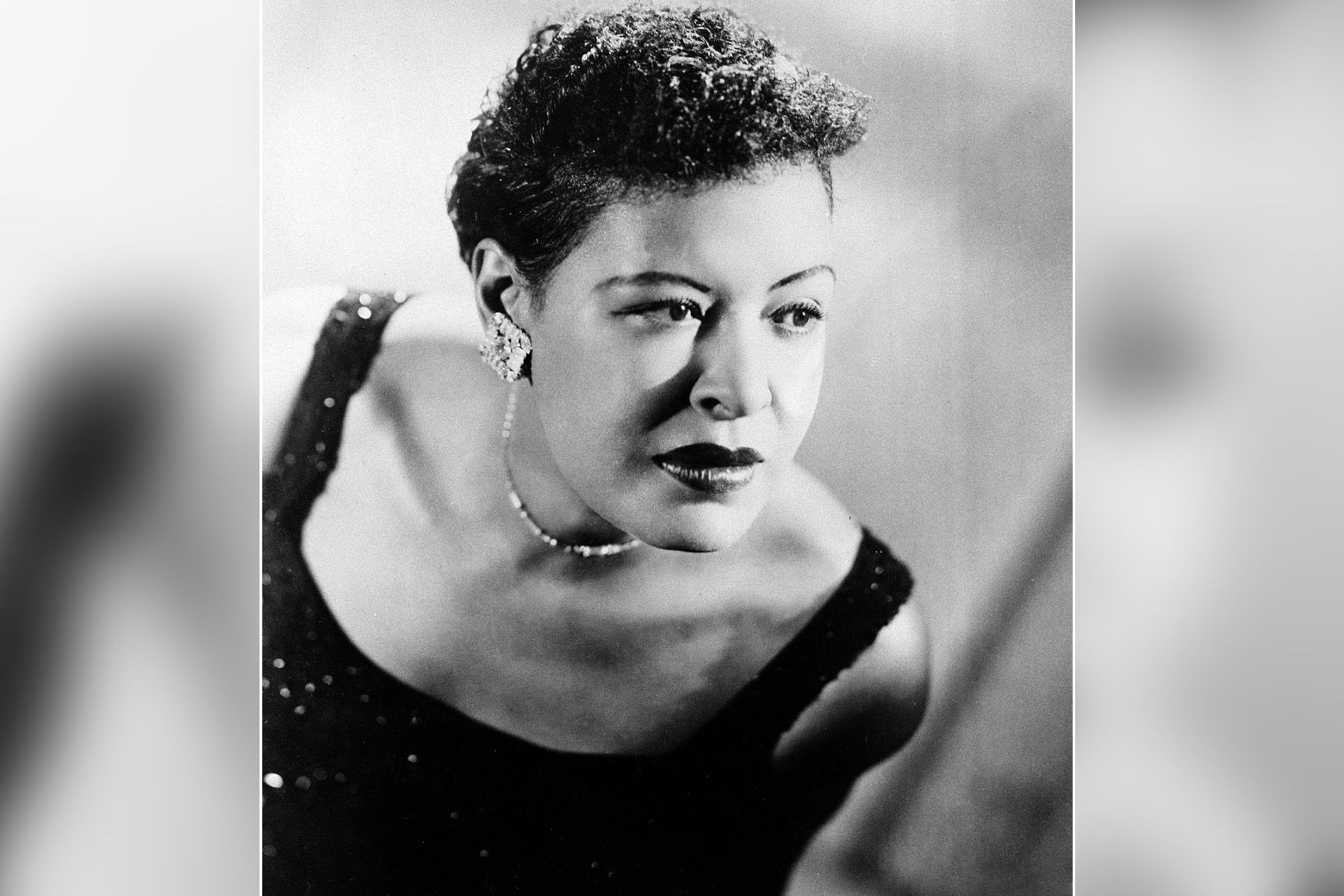
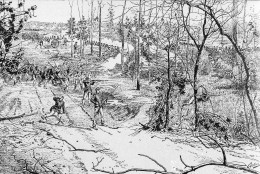
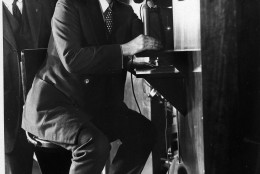
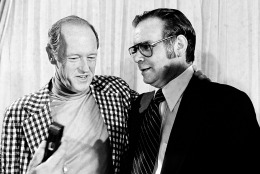

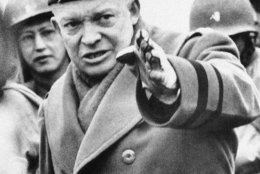

Today is Sunday, April 7, the 97th day of 2019.
Today’s Highlight in History:
On April 7, 1927, the image and voice of Commerce Secretary Herbert Hoover were transmitted live from Washington to New York in the first successful long-distance demonstration of television.
On this date:
In 1798, the Mississippi Territory was created by an act of Congress, with Natchez as the capital.
In 1862, Union forces led by Gen. Ulysses S. Grant defeated the Confederates at the Battle of Shiloh in Tennessee.
In 1915, jazz singer-songwriter Billie Holiday, also known as “Lady Day,” was born in Philadelphia.
In 1953, the U.N. General Assembly ratified Dag Hammarskjold (dahg HAWM’-ahr-shoold) of Sweden as the new secretary-general, succeeding Trygve Lie (TRIHG’-vuh lee) of Norway.
In 1954, President Dwight D. Eisenhower held a news conference in which he spoke of the importance of containing the spread of communism in Indochina, saying, “You have a row of dominoes set up, you knock over the first one, and what will happen to the last one is the certainty that it will go over very quickly.” (This became known as the “domino theory,” although Eisenhower did not use that term.)
In 1959, a referendum in Oklahoma repealed the state’s ban on alcoholic beverages.
In 1962, nearly 1,200 Cuban exiles tried by Cuba for their roles in the failed Bay of Pigs invasion were convicted of treason.
In 1966, the U.S. Navy recovered a hydrogen bomb that the U.S. Air Force had lost in the Mediterranean Sea off Spain following a B-52 crash.
In 1978, President Jimmy Carter announced he was deferring development of the neutron bomb, a high-radiation weapon.
In 1983, space shuttle astronauts Story Musgrave and Don Peterson went on the first U.S. spacewalk in almost a decade as they worked in the open cargo bay of Challenger for nearly four hours.
In 1994, civil war erupted in Rwanda, a day after a mysterious plane crash claimed the lives of the presidents of Rwanda and Burundi; in the months that followed, hundreds of thousands of minority Tutsi and Hutu moderates were slaughtered by Hutu extremists.
In 2008, anti-China protesters disrupted the Olympic torch relay in Paris, at times forcing Chinese organizers to put out the flame and take the torch onto a bus to secure it. Kansas won the NCAA championship, defeating Memphis 75-68 in overtime.
Ten years ago: President Barack Obama capped his eight-day European trip by addressing college students in Istanbul, Turkey; he then made an unannounced trip to Baghdad, where he visited with U.S. troops and Iraqi officials. Vermont became the fourth state (after Connecticut, Massachusetts and Iowa) to legalize same-sex marriage. Three members of the Congressional Black Caucus met with former Cuban President Fidel Castro in Havana. Former Peruvian President Alberto Fujimori was sentenced to 25 years in prison by a Lima court for death squad killings and kidnappings during his struggle against Shining Path insurgents.
Five years ago: Pro-Russian activists barricaded inside government buildings in eastern Ukraine proclaimed their regions to be independent and called for a referendum on seceding from Ukraine, an echo of events that had led to Russia’s annexation of Crimea. Alonzo Mourning, a seven-time NBA All-Star, and NCAA championship-winning coaches Nolan Richardson and Gary Williams were voted into the Naismith Memorial Basketball Hall of Fame. Connecticut won its second NCAA men’s title in four years, beating Kentucky 60-54 in the championship game. Model and media personality Peaches Geldof was found dead at her home in Wrotham, Kent, England, at age 25.
One year ago: Opposition activists and local rescuers said at least 40 people were killed in a suspected poison gas attack on the last remaining foothold for the Syrian opposition in the eastern suburbs of Damascus. Former Brazilian President Luiz Inacio Lula da Silva was taken into police custody after a showdown with with his own supporters, who tried to keep him from surrendering to face prison time for a corruption conviction.
Copyright © 2026 The Associated Press. All rights reserved. This material may not be published, broadcast, written or redistributed.







